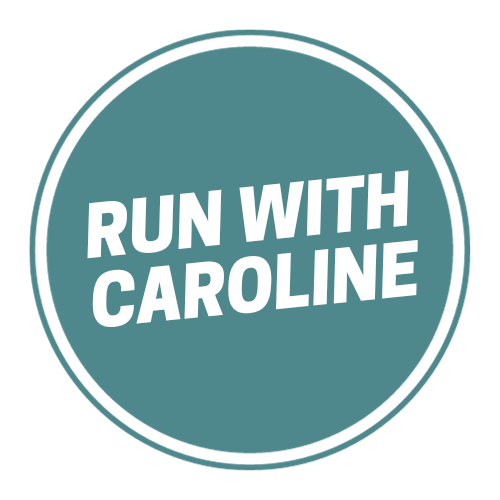Many runners will tell you that being able to run a 5k in under 20 minutes is a huge achievement.
If you’ve been running for several years then you may have your sights set on a sub-20 minute 5k.
Statistics show that runners who have been running for five years or more and regularly run 20 to 30 miles each week are more likely to achieve a 5k race time of between 18 to 21 minutes.
If you’re not quite there yet then worry not!
In this guide we’ll show you how to train for a sub-20 minute 5k and what to consider if you’re wanting to run a faster 5k.
In this guide we’ll explore:
- How many miles is a 5k?
- What is the average time to run a 5k?
- Are you ready to run a 5k in under 20 minutes?
- How to run a 5k in under 20 minutes
- What’s included in a sub 20-minute 5k training plan?
- How to run faster and increase your speed
- 7 tips to run a 5k in under 20 minutes
Ready?
Let’s get started!

How many miles is a 5k?
A 5k in miles in 3.1 miles.
This is half the distance of a 10k which is 6.1 miles.
If you’re planning to run a 5k in under 20 minutes, then you may have already completed many other race distances like the 10k and half marathon.
Many intermediate and advanced runners view the 5k as a race test when training for distances like the 10k, half marathon and marathon.
Related: How to run a 5k in under 25 minutes
What is the average time to run a 5k?
If you’re wanting to run a 20-minute 5k, then you will already have an idea of your average 5k race times.
You’re already way ahead of the majority of runners who record race times of between 23 to 40 minutes.
Your average 5k time will depend on various factors including your age, gender, fitness levels and running experience.
If you’re a beginner runner, for example, you will likely have a 5k race time of between 32 to 40 minutes.
Whereas a novice runner can expect to run a 5k in between 27 to 33 minutes, and an intermediate runner between 23 to 29 minutes.
Related: How long does it take to run a mile? Averages by age and gender

Are you ready to run a 5k in under 20 minutes?
Before you go all out and try to cross the finish line in under 20 minutes, it’s important to note that not everyone will be able to run a sub-20 minute 5k from the get go.
You are more likely to be able to achieve a sub-20 minute 5k if:
- You have been running for five or more years.
- You have run many 5k events (either competitively or non-competitively) as well as other race distances like the 10k and half marathon.
- You want to run a fast 5k and want to seek maximum performance by running a 5k.
- You are already running 4 to 5 days a week, 20 to 30 miles or more per week.
A decent amount of training goes into a sub-20 minute 5k, and your 5k race times to date will be a good predictor of whether you’re able to run a 5k in under 20 minutes.
- If you’ve never finished a 5k in under 30 minutes, for example, then it’s probably unrealistic for you to train for a sub-20 minute 5k within a matter of weeks.
- If you regularly record a 5k race time of 22-25 minutes, however, then a sub-20 minute 5k is well within your grasp.
Related: How to train for a 5k: The best 5k running tips
How to run a 5k in under 20 minutes
In order to run a 20-minute 5k you need to run at a pace of 6:26 minutes per mile or 4:00 minutes per kilometre.
If your current 5k race pace is 8:00 minutes per mile, for example (meaning you finish a 5k in roughly 25 minutes), then you’ve got to shave off well over a minute and a half from your race pace in order to run a 20 minute 5k.
While this is not impossible, you’ll need to put in the necessary hours of training to get where you want to be.
Once you know your goal race time, you can determine what pace you need to be running at not only on race day but during your training runs.
Let’s say you want to run a 5k in 18 minutes.
By entering your goal race time into a running pace calculator, you will see that in order to run a 5k in 18 minutes you need to be running at a pace of 5:48 minutes per mile or 3:36 minutes per kilometre.
You can then use this information to work out your training run paces using a race equivalency calculator.
So if you want to run a 5k in 18 minutes, your training runs need to be at the following paces:
| Training type | Pace per mile | Pace per kilometre |
| Easy run | 8:05 – 9:05 | 5:01 – 5:38 |
| Long run | 7:05 – 8:35 | 4:24 – 5:20 |
| Speed training (e.g. interval training) | 5:48 – 6:02 | 3:36 – 3:45 |
| Anaerobic threshold (e.g. tempo running) | 6:13 – 6:19 | 3:52 – 3:55 |
| Strides | 4:47 – 5:17 | 2:58 – 3:17 |
You may be wondering: why is this information important?
Essentially your training runs won’t all be at the same pace as your 5k race pace.
You’d have to be very fit runner to be able to sustain your 5k race pace on a long run over 6 miles, for example.
You will see that your pace on a long run is roughly 90 seconds slower than your 5k race pace.
Related: How to pace your run: 4 simple tips for effective pacing

What’s included in a sub 20-minute 5k training plan?
Once you know your 5k race pace and training paces, it’s time to put this all together into a training plan!
A typical advanced 5k training plan includes the following runs and workouts:
- 1-2 easy runs
- 1 long run
- 2 speed training sessions
- 1-2 strength training sessions
- 1 pace run
- 2 rest days
You will see that running and running alone is not the key factor here.
You need to be doing ancillary activities like speed training and strength training in order to run a 5k in under 20 minutes.
More on those next.
Related: 5k training plan: 5 speed workouts for a faster 5k
How to run faster and increase your speed
In order to run faster on race day, you need to be running faster during your training runs by doing a combination of easy runs, long runs and speed training.
There are three types of speed training that are essential to any training plan when wanting to run faster:
- Interval training
- Tempo running
- Hill sprints
In my advanced 5k training plan, you will find a full breakdown of each run and workout, as well as a week by week plan, but here is a breakdown of each:
#1 Interval training
Interval training is periods of fast running intermixed with periods of walking or slow jogging.
Your pace during an interval workout should be roughly the same as your 5k race pace.
This is so your body can get used to running at an accelerated speed during training so you don’t feel overwhelmed on race day.
An example interval training session could be 4 x 400m intervals separated by walking or jogging.
#2 Tempo running
Tempo running, also known as ‘anaerobic threshold running’, should be done at a pace that is about 25-30 seconds slower than your 5k race pace.
Think about 6 out of 10 on the effort scale.
The term ‘anaerobic threshold’ refers to the point at which lactate starts to build up in the blood stream and your body switches from using oxygen (aerobic) to without oxygen (anaerobic).
As such, tempo running is a good predictor of submaximal fitness (e.g. your ability to maintain a pace over a prolonged period of time without getting tired).
A tempo run typically lasts between 20 to 40 minutes.
#3 Hill sprints
Hill sprints are your secret weapon when it comes to running faster. After all, running on a flat surface only gets you so far!
Amongst many other benefits, hill sprints have been shown to improve race times, improve running form and and strengthen key running muscles.
The key is to focus on your form when doing hill sprints as they are physically taxing.
You can find out more in my hill sprint workout guide.
Related: 7 of the best running workouts to build endurance, strength and speed

7 tips to run a 5k in under 20 minutes
Now you know how to run a 5k in under 20 minutes, here are 7 training tips to help you achieve your next 5k PB.
#1 Warm up before each run
A fast 5k requires a thorough warm up to get your mind and body ready for the run.
A warm up will also go a long way to help prevent injury.
The general rule of thumb when it comes to warm ups is the faster and more intense the run, the longer the warm up needs to be.
Your warm up should consist of 10-15 minutes of light jogging, followed by 10 minutes of dynamic stretching such as leg swings and fast feet.
You may also want to include 5 minutes of strides or short bursts of running in your warm up.
#2 Be consistent
Being able to run a 5k in under 20 minutes is all about consistency.
This means be consistent with your training and not taking big leaps in your training plan.
If you train consistently and follow the prescribed training plan, you will see rewards in your running performance.
However don’t mistake consistency for overtraining.
Make sure you rest and recover on the designated rest days in the training plan and don’t be tempted to skip them.
#3 Fuel your body properly
When training for a running distance like the 5k it’s important you fuel your body properly by giving it the energy it needs to keep going week in week out.
Carbohydrates are your best friend as a runner, but you also need to be consuming the right amounts of protein, healthy fats and vitamins and minerals.
Think of your body as a car before a long journey.
If it doesn’t have the right fuel or sufficient levels of fuel, it will likely stall or break down completely during the journey.
Your body works in much the same way. With proper nutrition and hydration, it will work much more effectively.
#4 Listen to your body
If you’ve been running for many years, you will likely know how your body feels when it’s tired or needs a break from running.
It’s important to really listen to what your body is telling you and perform a daily check-in, especially when you are training for a high intensity run like a sub-20 minute 5k.
Your body gives off a huge array of signals on a daily basis: telling you when to eat if you feel hungry, when to drink if you feel thirsty, when to sleep if you feel tired.
It works in exactly the same way when you’re exercising, if in a slightly more discreet way.
- If you’re feeling tired or exhausted at the end of the week, it may be a sign you need to take an extra rest day.
- If you find yourself getting ill a lot of the time, it may be a sign that you’re pushing yourself too much too often and you need to dial down your training.
- If you feel a niggling pain or injury out on a training run, it’s a sign you need to stop and assess where the pain is coming from and what it is telling you.
Listening to your body takes practice and patience, but it’s something that even the most elite athletes practice on a daily basis to improve their running performance.
#5 Take rest and recovery seriously
Overtraining and burnout are very real risks for runners who regularly clock up 20 plus miles each week, so make rest and recovery a priority.
As discussed earlier, rest days are scheduled in your training plan to allow your body to recover and repair itself after a hard training run.
If you don’t like the idea of complete rest on your rest day, then active recovery days are a great alternative.
#6 Add variety into your training plan
The best athletes out there will tell you that the key to improved running performance in the long term is variety.
Variety in the form of distance, intensity and speed are all what make a successful training plan.
If you stick with running at a certain pace every week, you won’t see any long term gains in performance and speed.
By changing up your runs each week by adjusting the variables of distance, intensity and speed, you will see greater improvements in your race times.
This is why an advanced 5k training plan includes a range of different runs and workouts to get your body used to running at different paces, speeds and distances so it is better equipped to deal with the pressures on race day.
#7 Join an athletics club
There comes a point in every athlete’s life when they would benefit from the experience and expertise of a professional coach to show them exactly how to improve and achieve better race times.
Many athletics clubs nowadays have professional run coaches who specialise in working with athletes to prepare them and help them train for distance events.
The benefit of working with a run coach is that they will help you identify what you need to improve when it comes to your running performance, whether that be your running form, speed or training style.
The England Athletics website has a directory of athletics clubs that you can search to find the nearest club to you.
- 5 things I wish I’d known before returning to running - March 3, 2024
- Running 20 minutes a day: Benefits + how to start - January 27, 2024
- How to run your first 2 hour half marathon - January 16, 2024
